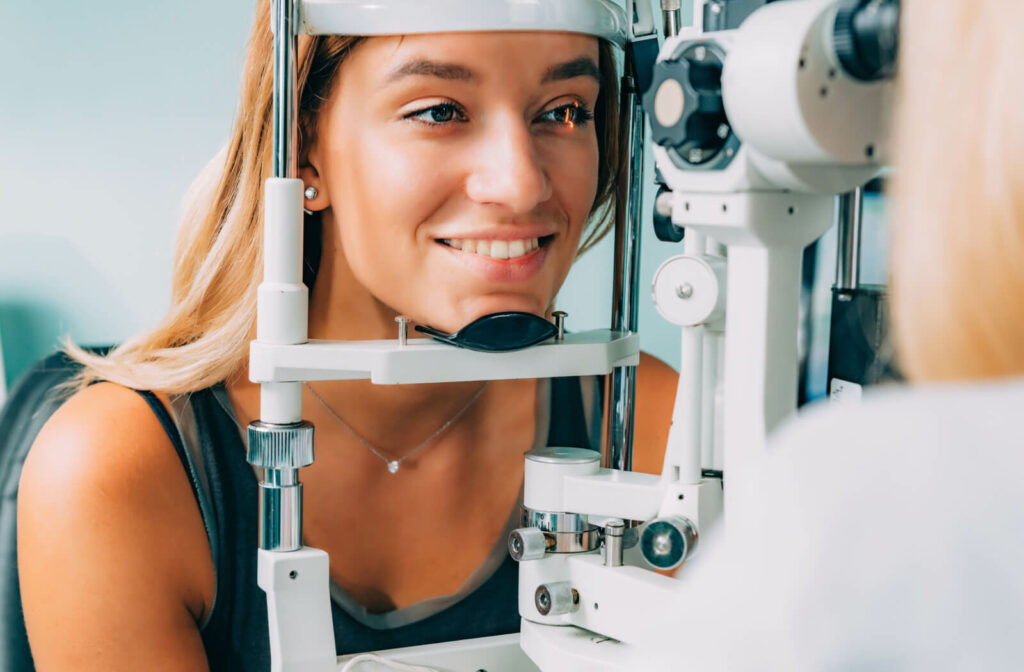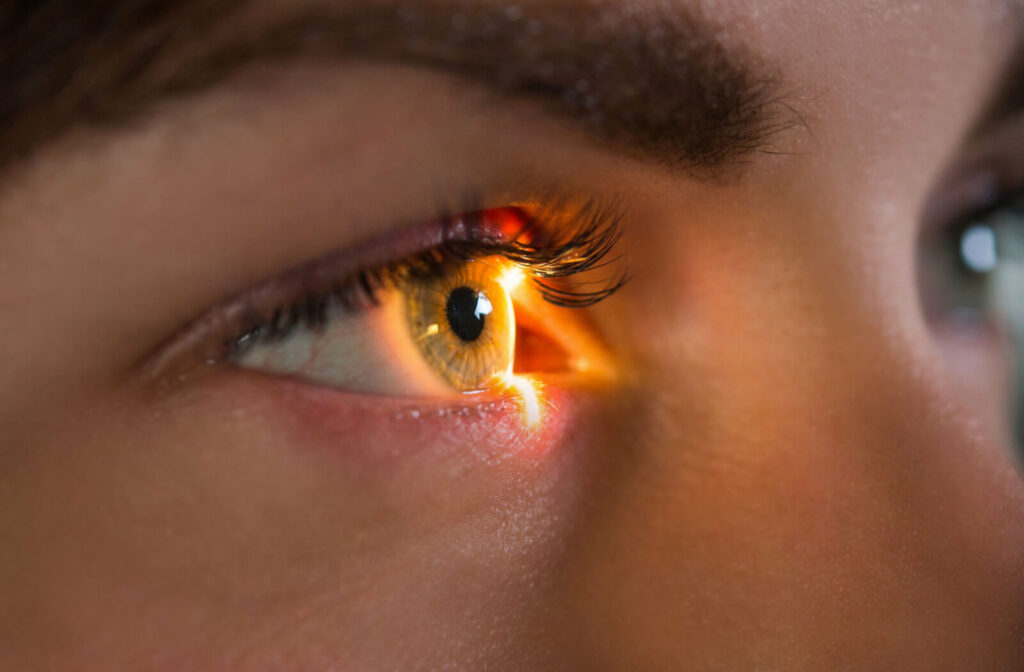Your eyes are integral to your vision and your overall health. They allow you to see the world around you and provide important visual information to your brain.
They also reveal a lot about your overall health. For example, problems with your eyes can sometimes be a sign of an underlying health condition, such as diabetes or high blood pressure.
For these reasons, we recommend you visit your eye doctor for routine eye exams. Contact us if you notice changes in your vision between appointments to rule out eye diseases and conditions.
Eyes & Overall Health
Your eyes aren’t just windows to the world around you; they also provide insight into what’s happening inside the body. In some cases, your eye doctor can reveal a health condition before you notice other warning signs in the body.
Here are some health conditions and problems that your eyes can reveal through an eye exam:
Diabetes
Diabetes is a chronic condition that affects how the body processes sugar or glucose. Insulin, a hormone in the body, regulates glucose in the blood. Insulin is released when blood sugar goes up. However, in type 1 and 2 diabetes, the body doesn’t produce enough insulin or can’t use it properly. Thus, sugar remains in the bloodstream instead of being used by the cells in your body.
High blood sugar levels can cause damage to the body and the eyes. This can cause changes in the blood vessels in the retina (the light-sensitive tissue at the back of the eye) which a diabetic eye exam can detect.
High blood sugar can lead to diabetic retinopathy, which can affect your vision and cause the following:
- Swelling of blood vessels
- Leakage of fluid
- Formation of abnormal blood vessels
- Blood vessels can close and stop blood flow
High Blood Pressure
High blood pressure (hypertension) is when blood flows through the blood vessels with higher than normal pressure. It can increase your risk of developing heart disease, heart attack, and stroke.
High blood pressure can cause damage to the small, delicate blood vessels that supply blood to the eyes:
- Blood vessels in the eyes can burst or bleed, leading to blurred vision and sometimes vision loss.
- You can have fluid buildup under the retina (choroidopathy).
- Blocked blood flow can damage the optic nerve (optic neuropathy).

Heart Disease
An eye exam can detect early signs of heart disease in the eyes, such as an eye stroke, by scanning the retina. This sign appears in far greater numbers in people with heart disease.
Thyroid Disease
The thyroid gland is located in the neck and produces hormones that regulate the body’s metabolism. Hyperthyroidism, commonly caused by Grave’s disease, can cause the following eye symptoms:
- Bulging or protruding eyeballs
- Retracting eyelids
- Eyelid swelling
- Sometimes with dry eyes, blurry vision, and vision loss
Multiple Sclerosis
Multiple sclerosis (MS) is a chronic autoimmune disease that affects the nervous system. It can cause inflammation of the optic nerve (optic neuritis), often the first sign of the disease. Other symptoms can include:
- Blurred or double vision
- Graying of vision
- Pain with eye movement
- Uncontrollable eye movements
- Blindness
Vitamin A Deficiency
Vitamin A is important for maintaining healthy eyes, and a deficiency can cause vision problems. Vitamin A deficiency can stop the production of a pigment needed to see the full spectrum of light.
Also, without enough vitamin A, your eyes can’t produce the moisture needed to keep them lubricated. Signs of a vitamin A deficiency can include:
- Dry eyes
- Night blindness
Brain Tumor
Brain tumors can increase the pressure that can affect the eyes. A sign of a brain tumor can be swelling at the back of the eyes that cause changes to the optic nerve. Other symptoms can include:
- Loss of side vision
- Blurry vision
- Recent double vision
- Changes in pupil size
High Cholesterol
Signs of high cholesterol appear as yellow deposits of fatty material on the inside of your upper and lower eyelids. They don’t impair eyelid function, but if they gradually get larger, they can cause discomfort.
Myasthenia Gravis
Myasthenia gravis is when your immune system attacks and weakens your muscles. Droopy eyelids in one or both eyes are a common first symptom of this condition.
Rheumatoid Arthritis
Rheumatoid arthritis is an inflammatory disease that affects your joints but can also affect the eyes. A common symptom of rheumatoid arthritis (RA) is dry eye. Inflammation of the sclera (scleritis), the white part of the eye, is another sign of rheumatoid arthritis.
Detect the First Signs of Disease
You can do several things to keep your eyes healthy, from eating well to protecting them from harmful UV rays, quitting smoking, and managing your blood and cholesterol levels. We cannot state the importance of regular eye exams enough, as they help to spot eye diseases and health conditions early on.
Book an appointment for your next eye exam with the team at Charles Korth Optometry to help protect your sight and overall health.




